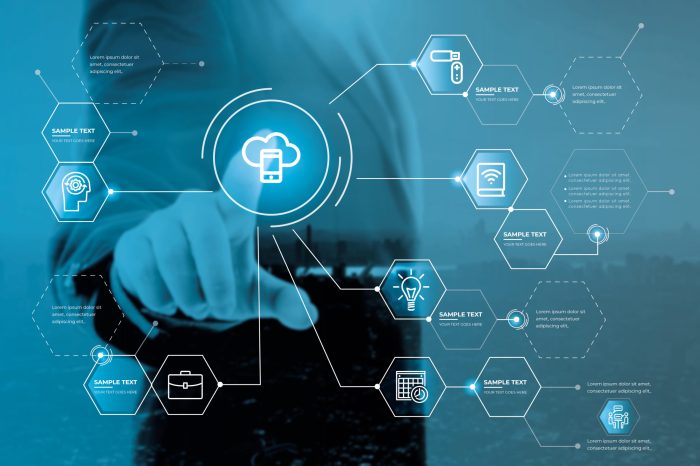How should estheticians relate to emerging new technologies? This question has become increasingly relevant as technological advancements continue to transform the beauty industry. With the rise of AI-powered skincare devices, virtual consultations, and non-invasive treatments, estheticians must adapt to these innovations to remain competitive and provide exceptional client experiences.
This article will explore the multifaceted relationship between estheticians and emerging technologies. We will discuss the ethical considerations, training requirements, collaboration opportunities, and the potential impact of these advancements on the esthetics profession.
Estheticians’ Role in Emerging Technologies

The esthetics industry is rapidly evolving, driven by the emergence of new technologies. These technologies offer estheticians a unique opportunity to enhance their services, improve client outcomes, and stay ahead of the competition.
Leveraging Technologies, How should estheticians relate to emerging new technologies
Estheticians can leverage emerging technologies in various ways, including:
- Using advanced imaging devices to assess skin conditions and create personalized treatment plans.
- Employing microcurrent and radiofrequency devices to stimulate collagen production and improve skin elasticity.
- Incorporating LED light therapy to treat acne, reduce inflammation, and promote wound healing.
Successful Adoption
Many estheticians have successfully embraced new technologies, resulting in improved client satisfaction and business growth. For example, celebrity esthetician Renée Rouleau has incorporated advanced skin analysis technology into her practice, allowing her to provide highly targeted treatments tailored to each client’s unique needs.
Ethical Considerations
While emerging technologies offer numerous benefits, estheticians must also consider the ethical implications of their use. These include:
- Client Privacy:Estheticians must ensure that client information, including images and treatment data, is kept confidential and secure.
- Safety:Estheticians should only use technologies for which they are trained and certified, ensuring client safety and minimizing potential risks.
- Industry Regulations:Estheticians must stay up-to-date on industry regulations related to technology use to ensure compliance and protect clients.
By adhering to ethical guidelines, estheticians can build trust with clients and maintain the integrity of the profession.
Training and Education: How Should Estheticians Relate To Emerging New Technologies
To effectively utilize emerging technologies, estheticians require comprehensive training and education. This includes:
- Technical Skills:Estheticians need to master the operation and maintenance of various technologies.
- Skin Science:A deep understanding of skin anatomy, physiology, and pathology is essential for safe and effective technology use.
- Treatment Protocols:Estheticians must be trained on the proper use of technologies for specific skin conditions and treatment goals.
Estheticians can access training through continuing education programs, workshops, and online courses.
Collaboration and Partnerships

Collaboration with technology providers can benefit estheticians in several ways:
- Access to Latest Innovations:Estheticians can gain early access to cutting-edge technologies and receive ongoing support from providers.
- Training and Education:Technology providers often offer training programs and educational materials to estheticians.
- Marketing and Promotion:Partnerships can help estheticians promote their services and reach new clients.
For example, the partnership between esthetician Jessica Alba and technology company Kinsa Health resulted in the development of the Smart Thermometer, a device that allows clients to monitor their skin temperature and track skin health.
Impact on the Esthetics Profession

Emerging technologies are expected to transform the esthetics profession in several ways:
- Expanded Scope of Practice:Technologies may enable estheticians to offer new services and treatments, expanding their role in skin care.
- Job Role Evolution:Estheticians may need to acquire new skills and knowledge to operate and maintain advanced technologies.
- Increased Competition:The use of technologies may increase competition among estheticians, requiring them to differentiate their services and stay up-to-date with the latest advancements.
By embracing emerging technologies and adapting to the evolving industry landscape, estheticians can position themselves for success and continue to provide high-quality skin care services.
Commonly Asked Questions
How can estheticians leverage emerging technologies to enhance their services?
By utilizing AI-powered skincare analysis tools, virtual consultations, and non-invasive treatment devices, estheticians can provide personalized and effective skincare solutions tailored to each client’s unique needs.
What are the ethical considerations estheticians should be aware of when using new technologies?
Estheticians must prioritize client privacy, data security, and transparency when using emerging technologies. They should also stay informed about industry regulations and guidelines related to technology use.
How can estheticians stay up-to-date on the latest technological advancements in the beauty industry?
Attending industry conferences, webinars, and workshops, as well as subscribing to relevant trade publications and online resources, can help estheticians stay informed about the latest technologies and trends.